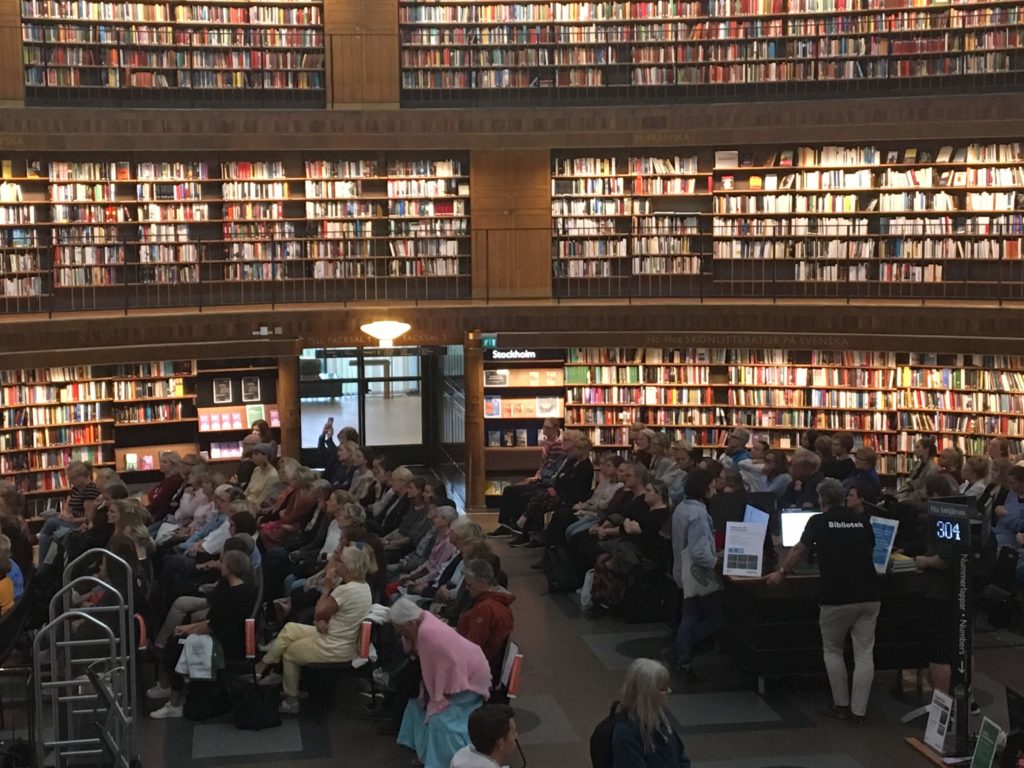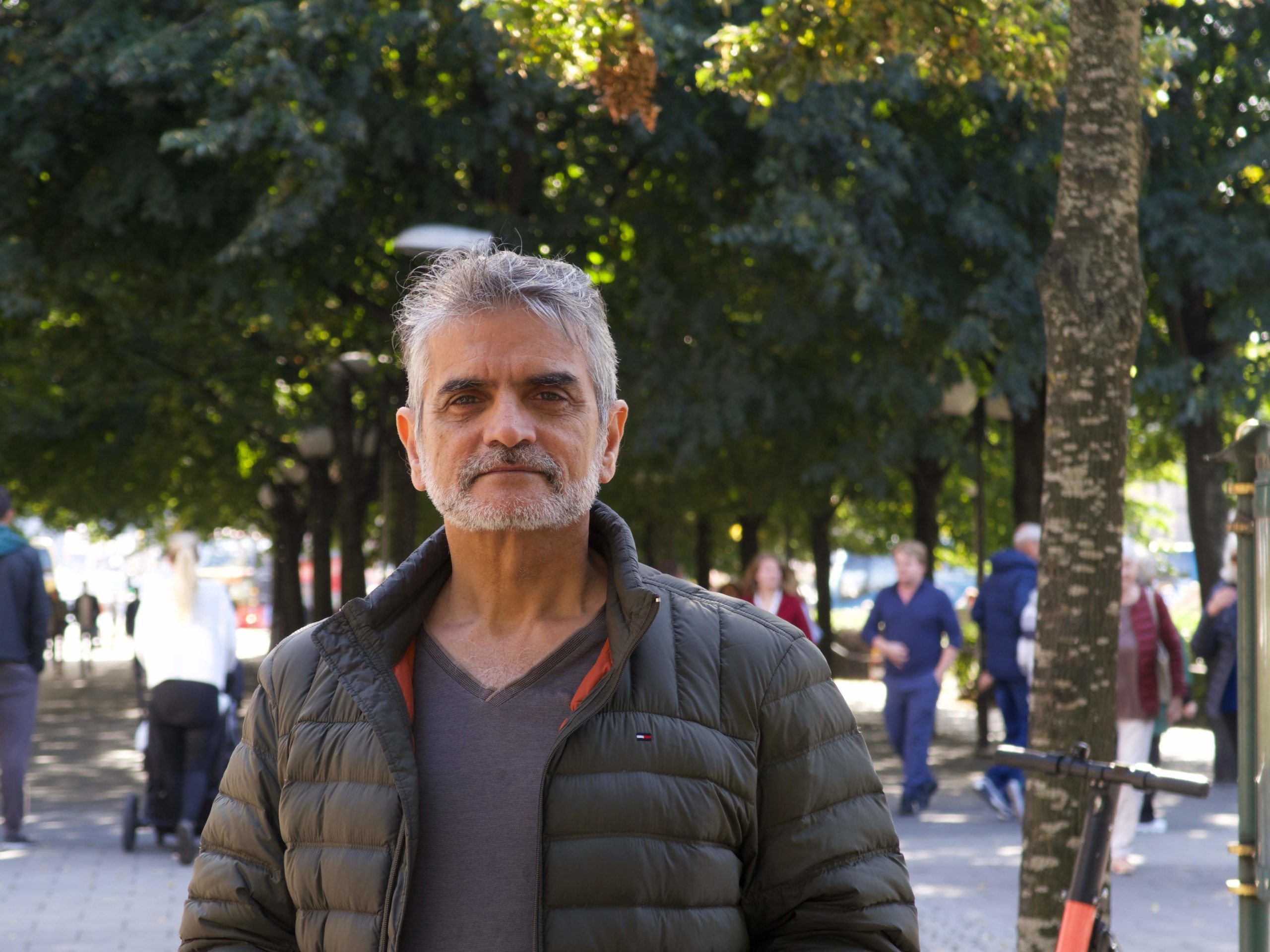
Since the publication of Edward Said’s Orientalism in 1978, scholars of religion and other disciplines in the humanities have been looking for alternative methods and theories to represent the Other. But finding this alternative has been elusive. In a recent reflection, Birgit Meyer lamented the fact that the humanities remain Eurocentric. One of the challenges of decolonization is to address this desire for an alternative method and theory against the reality of a distorted field. Whilst scholarship has become steadily global, the field continues to be dominated by what V. Y. Mudimbe called a Colonial library.
The study of Islam in the modern world offers an opportunity to address this dilemma in a concrete way. From the US to Pakistan, there has been a renewed interest in applying theories of religion to Islam. In doing so, scholars turn to the comparative study of religions that emerged in nineteenth-century Europe during the highpoint of colonialism. While a postmodernist skepticism of the discipline of comparative religion is readily embraced in the field, there is no equivalent skepticism of the colonial condition. Thus, J. Z. Smith’s critical reflections on the study of religions are easily remembered against theologians who work in the field. In contrast, the colonial imbrication of the discipline is ignored or only briefly acknowledged. For example, Russell McCutcheon’s critical review of phenomenology is directed against Eliade and most scholars of religion who betray a hint of theological or sui generis thinking, but is virtually silent on the colonial condition of the discipline. Scholarship monitors the intrusion of theology into the discipline, while allowing colonialist assumptions to go unchecked and unthought. Colonialism is often euphemistically represented as modernization or a benign intervention that changed the world.
For Islamic and religious studies, critical voices within Islam offer a decolonial perspective that challenges these assumptions. These critical voices emerged in response to colonialism in different parts of the world, at the very time that the study of religions was taking off in the colonial centers of power. The contrast between the scholarship of the colonizers and colonized has, to my mind, never been seriously discussed. Critical voices in Islam have certainly not been ignored, but they have been evaluated against the backdrop of social processes or political alliances created by colonialism. For example, modernization, traditionalization, and postmodernism are first found in the West, and then adjusted and hyphenated for the rest of the world. Political alliances are similarly measured against new political realities created in the colonial and post-colonial centers of global power.

Paying close attention to the intellectual labour of critical voices from colonized contexts leads us to new insights on how to think about religion. In a book published in 2009, I focussed on how intellectuals like Muhammad Abduh and Sayyid Ahmad Khan grappled with new definitions for thinking about religion and Islam. I argued that a new intellectual discourse was developed on Islam for Muslim societies. This discourse was entangled with colonialism, but its intellectual labor on religion as a concept was unmistakable. My work was inspired by Talal Asad and David Chidester’s critical reflections on the construction of a discourse of religion in the Western tradition, in which Asad provincialized the discourse of religion in the history of the West, while Chidester showed its colonial roots. In a twist of irony, Asad and Chidester have been followed by many other reflections on Western scholars; their critical reflection has accentuated Western scholarship. As in similar navel-gazing exercises of critical scholarship, the Colonial Library became even more dominant than before.
In my book, I took a different approach. Following Asad and Chidester diligently, I could have paid attention to how the category of religion was used implicitly and explicitly by Western scholars of Islam. But taking a different course of action in this book, I paid attention to the intellectual labor of Muslim critical voices instead. In a decolonial gesture, I turned my gaze away from Western scholars on religion, and paid attention to how religion was theorized in different political and social contexts.
I have since realized that taking these critical voices seriously as intellectual labor goes against a dominant view of the study of religion. Since the nineteenth century, religion has been conceptualized in a number of diverse ways. But one dominant thread running through the discourse is captured in Peter Berger’s metaphor of a sacred canopy. Functionalist theories from Durkheim onwards emphasized that religion totally and completely envelops its members. Adherents to religious traditions can only see the world through its rituals, narratives, and beliefs. In a famous phrase by Clifford Geertz, religious symbols clothe the social world “with … an aura of factuality” (4). Notwithstanding critical reflections of religion, this perception of the power of religion remains dominant. Critique is not expected from religious discourse.
Alongside the totalizing effect of religions, the study of religion generally argues or assumes that only the modern scholar can see the truth of reality. Unlike the religious subject, the scholar is not enveloped in an “aura” of factuality, but sees things as they are really are. Self-criticism is not entirely missing in the study of religions, but it is believed that eventually secular critique is the only critique worthy of its name. In contrast, I would like to suggest that critical voices within Islam and other religious traditions should be counted within the tradition, and recognized for the work they do against such totalizing accounts of religious experience. These critical voices shatter the vision of religion as a sacred canopy, and call for a more complex and differentiated model of thinking about religion.
In conclusion, critical studies of religion have accepted the fragility of the concept of religion, but they have problematically focused entirely on the Western tradition. In response to Asad, Chidester, and others, the Western tradition is sometimes provincialized and exceptionalized in one move. In this latter practice, no other theorizing of religion is said to be possible. Religion belongs to the West and its academy. A decolonial approach such as I have offered pursues a comparative exercise in which the Western tradition is neither universal nor exceptional. It must enter into dialogue and conversation with other ways of thinking of religion and the religious.
A decolonial gesture in the study of religion must address the challenge laid down by Said. Since his significant publication, scholars have searched relentlessly for an alternative. But over this period of time, the Colonial/Western Library has become even more dominant and hegemonic. One way of addressing this anomaly is to seriously look at the critical intellectual labor that is found within religious traditions. Such a gesture may unseat a deep-seated assumption about religion, shared by nineteenth- and early twenty-first-century scholars, that religious worlds are totalizing.
Cited References
Asad, Talal. 1993. Genealogies of Religion: Discipline and Reasons of Power in Christianity and Islam. Baltimore: Johns Hopkins University Press.
Chidester, David. 1996. Savage Systems: Colonialism and Comparative Religion in Southern Africa. Charlottesville; London: University Press of Virginia.
Geertz, Clifford. 1966. “Religion as a Cultural System.” In Anthropological Approaches to the Study of Religion, edited by Michael Banton, 1–45. London: Tavistock Publications.
McCutcheon, R. T. (1995). Review: The Category “Religion” in Recent Publications: A Critical Survey. Numen, 42(3), 284-309.
McCutcheon, R. T. (1997). Manufacturing Religion: The Discourse on Sui Generis Religion and the Politics of Nostalgia. Oxford: Oxford University Press.
Meyer, Birgit. 2019. “Sozial-Und Geistenwissenchaften Und Die Welt.” Accessed 15 April, 2019.
Mudimbe, V.Y. 1997. Tales of Faith: Religion as Political Performance in Central Africa. New Jersey: The Athlone Press.
Tayob, Abdulkader. 2009. Religion in Modern Islamic Discourse. London: C. Hurst & Co.


Great!